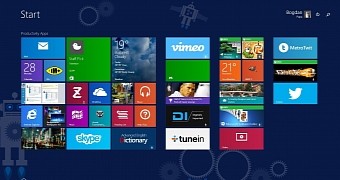After Windows 7 reached the end of support back in January 2020, another Windows version is approaching the moment when it’ll get the last batch of updates.
This time, it’s Windows 8.1, with the end-of-life date set for January 10. Microsoft has therefore issued a new warning aimed at users who are still running this operating system, telling them to upgrade as soon as possible.
Needless to say, not all Windows 8.1 devices can be upgraded to Windows 11, especially as Microsoft’s latest and greatest operating system comes with new system requirements that most old computers wouldn’t meet.
On the other hand, a Windows 8.1 PC should theoretically be capable of running Windows 10 just fine. Windows 10 will continue to receive updates until October 2025.
Microsoft took to Twitter to remind users that Windows 8.1 will be retired in early January.
“As a reminder, Windows 8.1 will reach the end of support on Jan. 10, 2023. Technical assistance and software updates will no longer be provided beyond this date. We recommend upgrading Windows 8.1 devices to a supported Windows release,” it says.
The company further details the retirement of Windows 8.1 on a FAQ page, revealing that no ESU program would be offered for this operating system. This means that not even paying companies would be provided with security updates after the end-of-support date is reached.
“Microsoft will not be offering an Extended Security Update (ESU) program for Windows 8.1. Continuing to use Windows 8.1 after January 10, 2023 may increase an organization’s exposure to security risks or impact its ability to meet compliance obligations,” the company notes.
So what should you do if your device can’t be upgraded to a newer version of Windows? Microsoft’s advice is to purchase a new PC able to run Windows 11, as you can thus end up using the latest and greatest Windows version currently available.

 14 DAY TRIAL //
14 DAY TRIAL //